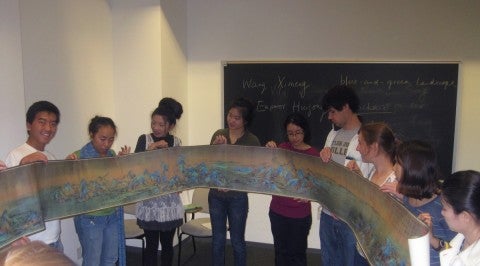"'Race,' Racism, and Representation in Roman Art: Aethiopians in the Visual Arts of the Roman World"
The visual and material culture of the Roman Empire provides an abundant record of encounters with or simply imaginings of foreign peoples. These images render visible complex formulations of ethnicity, social hierarchies, and power. This lecture surveys the ways in which imperial artists represented the peoples whom the Romans referred to as Aethiopians or Nubians (i.e., “Black” Africans) in a variety of visual media. The lecture also considers how and why these works have been (mis)interpreted or sometimes altogether ignored by ancient art historians, and proposes new ways of integrating them into future, critical histories of Roman art.
====
Sinclair Bell is Professor of Art History and Presidential Teaching Professor at Northern Illinois University, where he has taught since 2008. He studied classical languages, ancient history, and classical art and archaeology at Wake Forest University, the University of Oxford, the University of Cologne, and University of Edinburgh, from which he received his PhD in Classics in 2004. His research focuses on Etruscan Italy and imperial Rome and its provinces, with particular interest in sport and spectacle, the child and family, enslaved and freed persons, and "race" and its representation.
He has received support for his research from numerous organizations, including the Rome Prize from the American Academy in Rome, the Howard Fellowship from the Howard Foundation at Brown University, the Richard D. Cohen Fellowship at the Hutchins Center at Harvard University, and, most recently, a year-long fellowship from the National Endowment for the Humanities. He has published nearly 100 articles, book chapters, and book reviews and co-edited 18 books, including most recently a volume with Ingrid Rowland, "Brill’s Companion to the Reception of Vitruvius" (to appear in 2023).
He is currently at work on a book-length study, "Aethiopians in Roman Art and Society: Visualizing Difference in a Multi-ethnic Empire," the subject of his lecture today.

